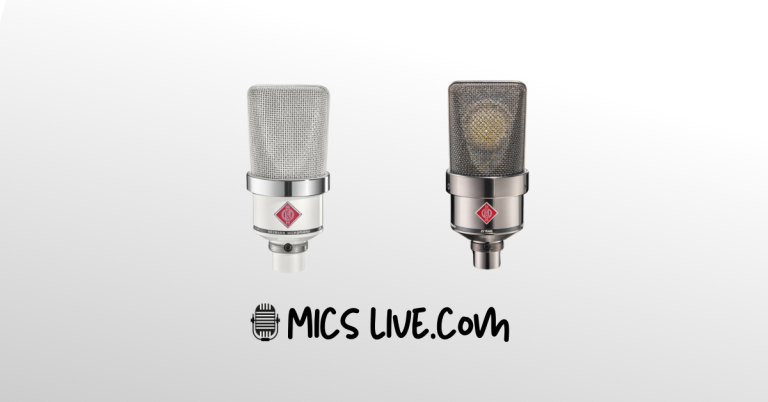

In the ever-evolving world of podcasting, choosing the best host can feel overwhelming. But worry not, aspiring podcaster! Here’s a breakdown of some top contenders in 2025, catering to different needs and budgets:
Buzzsprout: A user-friendly platform with excellent analytics, monetization features, and solid storage options. It strikes a great balance between affordability and features.
Podbean: Offers a free plan to get your feet wet, along with clear pricing tiers and a user-friendly interface. It’s a good starting point for beginners.
Spreaker: Provides a generous free plan with decent storage and bandwidth, making it a good option for those just starting.
Libsyn: Offers advanced features like private RSS feeds and targeted advertising, catering to established podcasts with a focus on growth and monetization.
Castos: Embraces the emerging Podcast 2.0 standards, allowing for richer content experiences like chapters and transcripts within podcast apps (availability varies).
Captivate: A strong contender known for its advanced analytics, marketing tools, and focus on helping podcasters grow their audience.
Spotify for Creators: Offers free hosting and reach but has limitations in analytics and storage.
Acast: strong monetization and analytics but can be costly and complex, with revenue sharing and mixed customer support.
Blubrry: Reliable statistics, seamless WordPress integration, and good customer support, along with a free website, but its interface is less modern, and pricing increases with storage limits
Notes:
IAB Certified Statistics is a standardized measurement metric adopted by podcast producers and distributors to ensure consistent and accurate audience tracking across the podcast industry. For hosts and providers who adhere to this certification, we’ve included the following in their listing: IAB Certified Statistics: Delivers dependable, industry-approved audience metrics.
Host providers are not ranked in any specific order of preference. Factors such as monetization opportunities, customer support, pricing models, website inclusion, and additional technical features have been carefully evaluated.
Pros and Cons of each
1. Buzzsprout
- Pros:
- IAB Certified Statistics: Provides reliable and industry-standard audience measurement.
- Interface: Known for its easy-to-navigate and intuitive platform.
- Customer Support: Provides helpful and responsive customer service.
- Pricing Structure: Offers competitive pricing plans suitable for various budgets.
- Website Included: Provides a basic podcast website with each plan.
- Analytics: Offers decent analytics to track podcast performance.
- Cons:
- Storage: Some lower-tier plans have monthly upload limits.
- Interface Features: Not as advanced marketing or customization options as some competitors.
2. Podbean
- Pros:
- IAB Certified Statistics: Provides reliable and industry-standard audience measurement.
- Generous Free Plan: Offers a free plan to experiment with basic podcasting.
- Pricing Structure: Provides a clear pricing structure with different tiers to suit various needs.
- Interface: Simple and intuitive interface, making it user-friendly for beginners.
- Website & Social Tools: Offers a website builder and social media scheduling tools (on higher tiers).
- Cons:
- Limited Analytics: Analytics can be less detailed compared to some advanced platforms.
- Monetization: somewhat limited on lower-tier plans.
- Storage: The free plan has limitations on storage space and bandwidth.
3. Spreaker
- Pros:
- Live Streaming: Offers live podcasting capabilities.
- Monetization: Provides various options, including advertising and programmatic ads.
- Dynamic Ad Insertion: Supports dynamic ad insertion for targeted advertising.
- Multiple User Management: Allows multiple team members to manage a podcast.
- Mobile App: Offers a mobile app for recording and managing podcasts on the go.
- Cons:
- Pricing Structure: Pricing can become complex depending on your needs.
- Analytics: Features are less in-depth than advanced platforms.
- Limited customization: for design and branding.
4. Libsyn
- Pros:
- IAB Certified Statistics: Provides reliable and industry-standard audience measurement.
- Longstanding Reputation: One of the oldest and most established podcast hosting platforms.
- Reliable Hosting: Known for its reliable hosting and distribution.
- Monetization: Offers various monetization tools, including advertising and subscription options.
- Storage Options: Offers a range of storage plans to suit different needs.
- Cons:
- Interface: Some users find the interface to be somewhat outdated compared to newer platforms.
- Pricing Structure: Pricing is based on storage, which can become expensive for podcasts with large file sizes or frequent uploads.
5. Castos
- Pros:
- Unlimited Episodes: Offers unlimited episode uploads on all plans.
- WordPress Plugin: Provides a seamless integration with WordPress websites via their Seriously Simple Podcasting plugin.
- YouTube Repurposing: Automatically republishes your podcast episodes to YouTube.
- Website Included: A podcast website is included with every plan.
- Apps: Offers white-labelled mobile apps for a branded listening experience (on higher tiers).
- Cons:
- New: A relatively new player in the market compared to established names.
- Pricing Structure: might be on the higher end for some users.
- Interface: might have a learning curve for those unfamiliar with Podcast 2.0.
6. Captivate
- Pros:
- IAB Certified Statistics: Provides reliable and industry-standard audience measurement.
- Growth-Oriented Features: Focuses on audience growth with tools like marketing integrations, call-to-actions, and advanced analytics.
- Unlimited Hosting: Offers unlimited episode uploads, regardless of plan.
- Multiple Shows: Allows hosting multiple podcasts within one account.
- Customizable Player: Provides a customizable podcast player that can be embedded on websites.
- Marketing Tools: Includes tools to help promote your podcast, such as email marketing integration.
- Cons:
- Pricing Structure: Pricing might be higher compared to some budget-friendly options. No free trial or free tiers (although they did offer 3 months for free at the start of 2025).
- Interface: Platform’s advanced features are slightly complex, but geared towards data-driven optimization and audience growth.
7. Spotify for Creators (Podcasters)
- Pros:
- Pricing Structure: Free hosting for uploading, hosting, and distributing episodes.
- Analytics: Built-in analytics insights.
- Monitization: Offers monetization tools and supports video podcasts.
- Interface: Streamlined dashboard for managing shows, episodes, stats, and monetization, along with listener interaction tools.
- Additional: Massive reach through Spotify’s global user base.
- Cons:
- Statistics: Analytics can be less detailed compared to some advanced platforms.
- Storage: The free plan has storage and bandwidth limitations.
- Ownership: Concerns about ownership of content.
8. Acast
- Pros:
- IAB Certified Statistics: Provides reliable and industry-standard audience measurement.
- Monetization Options: Strong emphasis on monetization, options like advertising, subscriptions (Acast+), and branded content.
- Storage: Easy management of multiple podcasts within a single account.
- Pricing Structure: Different tiers and solutions.
- Cons:
- Pricing Structure: Can be more expensive than some other hosting options, particularly for accessing advanced features.
- Interface: Complex for beginners to navigate. Some revenue-sharing arrangements with Acast.
- Customer Support: Users mixed experiences with Acast’s customer support.
9. Blubrry
- Pros:
- IAB Certified Statistics: Provides reliable and industry-standard audience measurement.
- WordPress Integration: PowerPress plugin for integration with WordPress websites.
- Podcast Website: Offers a free website for your podcast.
- Customer Support: Known for its helpful and responsive customer support.
- Monetization Options: Provides advertising opportunities and tools.
- Cons:
- Interface: Less modern or intuitive compared to other platforms.
- Storage Limits: Some storage limits, concern for podcasts with large audio files or a high volume of episodes.
- Pricing Structure: Can become more expensive as your storage needs increase.
But which one should I choose?
Tip: Align your podcasting goals, budget, and essential features when selecting a host. Take advantage of free trials, evaluate options thoroughly, and be open to switching platforms as your needs grow and change!
Here’s how you can make a more informed decision:
- Research and Reviews: Look for independent reviews and user testimonials of these platforms. User feedback can shed light on the real-world experience and user base size (though not exact numbers).
- Ask someone: if you know existing podcasters ask them about their host experience. Or approach a podcaster you respect.
- Social Media Presence: Many podcast hosting services have active social media communities. The size and engagement on these platforms can be an indicator of their user base. and perhaps an indicator of the quality of service.
- Industry Awards and Recognition: Awards and recognition within the podcasting industry can suggest a platform’s popularity and user trust.
For further information with links to a greater number of host providers, read this article about Podcast hosts at Podnews.net






